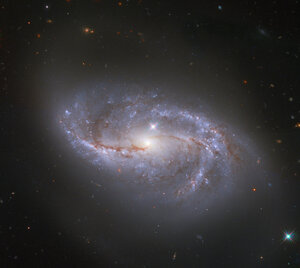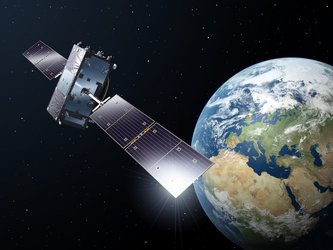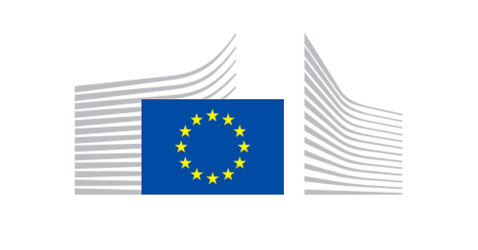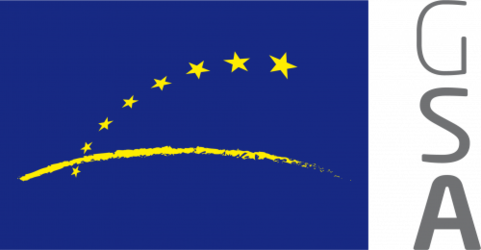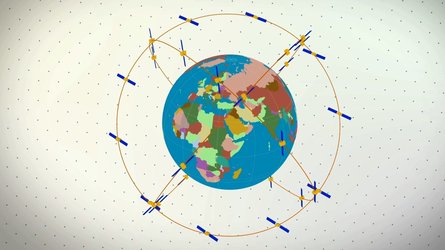Launch of new Galileo navigation quartet
An Ariane 5 rocket has launched four additional Galileo satellites, accelerating deployment of the new satellite navigation system.
The Ariane 5, operated by Arianespace, lifted off from Europe’s Spaceport in Kourou, French Guiana at 13:06 GMT (14:06 CET, 10:06 local time) carrying Galileo satellites 15–18. The first pair was released 3 hours 35 minutes and 44 seconds after liftoff, while the second separated 20 minutes later.
The Galileos are at their target altitude, after a flawless release from the new dispenser designed to handle four satellites.
Over the next few days, engineers will nudge the satellites into their final working orbits and begin tests to ensure they are ready to join the constellation. This is expected to take six months or so.

This mission brings the Galileo system to 18 satellites.
The satellites already in orbit will allow the European Commission to declare the start of initial services, expected towards year’s end.
The previous 14 satellites were launched two at a time using the Soyuz–Fregat rocket.

“Now that we can rely on the powerful Ariane 5, we can anticipate the quicker completion of Galileo deployment, permitting the system to enter full operation,” remarked Paul Verhoef, ESA’s Director for the Galileo Programme and Navigation-related Activities.
Two additional Ariane 5 launches are scheduled in 2017 and 2018. The full system of 24 satellites plus spares is expected to be in place by 2020.
“With this 75th successful launch in a row, Ariane-5 sets a new record within European developed launchers and proves once more its reliability, " said Daniel Neuenschwander, ESA’s Director for Launchers.

About Galileo
Galileo is Europe’s civil global satellite navigation system. It will allow users worldwide to know their exact position in time and space with great precision and reliability. Once complete, the system will consist of 24 operational satellites and the ground infrastructure for the provision of positioning, navigation and timing services.
The Galileo programme is funded and owned by the EU. The European Commission has the overall responsibility for the programme, managing and overseeing the implementation of all programme activities.
Galileo’s deployment, the design and development of the new generation of systems and the technical development of infrastructure are entrusted to ESA. The definition, development and in-orbit validation phases were carried out by ESA, and co-funded by ESA and the European Commission.
The European Global Navigation Satellite System Agency (GSA) is ensuring the uptake and security of Galileo. Galileo operations and provision of services will be entrusted to the GSA from 2017.


Access the video














 Germany
Germany
 Austria
Austria
 Belgium
Belgium
 Denmark
Denmark
 Spain
Spain
 Estonia
Estonia
 Finland
Finland
 France
France
 Greece
Greece
 Hungary
Hungary
 Ireland
Ireland
 Italy
Italy
 Luxembourg
Luxembourg
 Norway
Norway
 The Netherlands
The Netherlands
 Poland
Poland
 Portugal
Portugal
 Czechia
Czechia
 Romania
Romania
 United Kingdom
United Kingdom
 Slovenia
Slovenia
 Sweden
Sweden
 Switzerland
Switzerland











